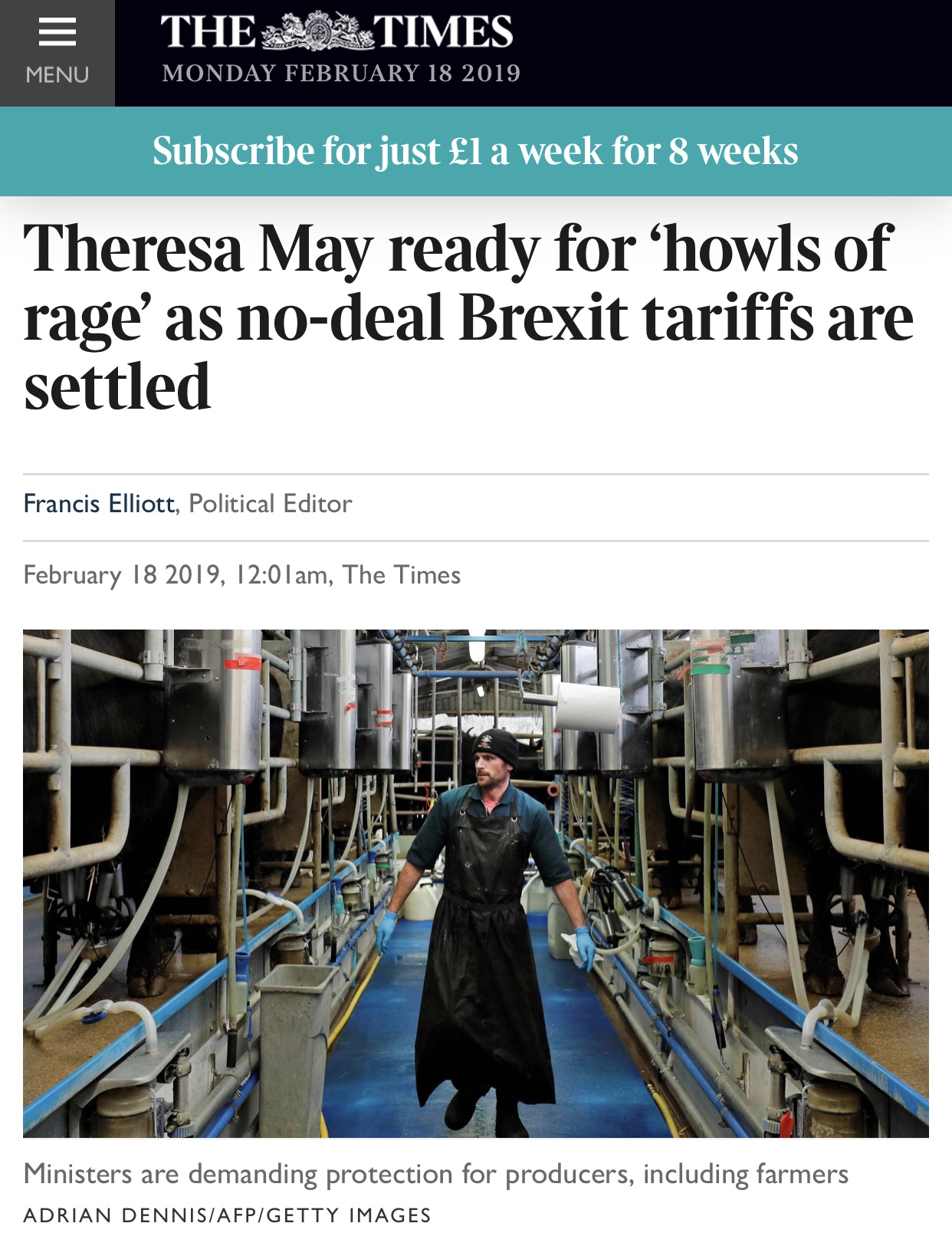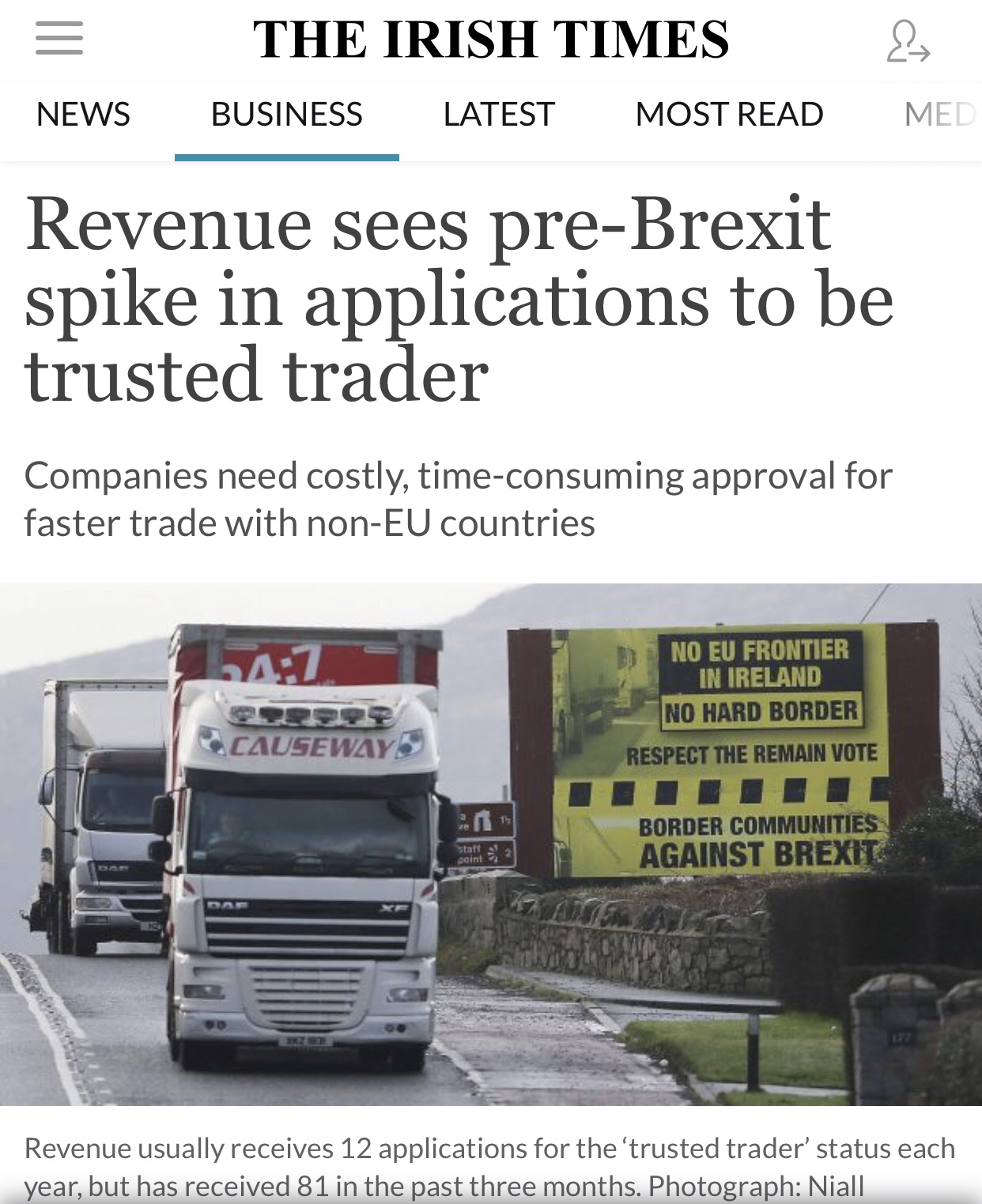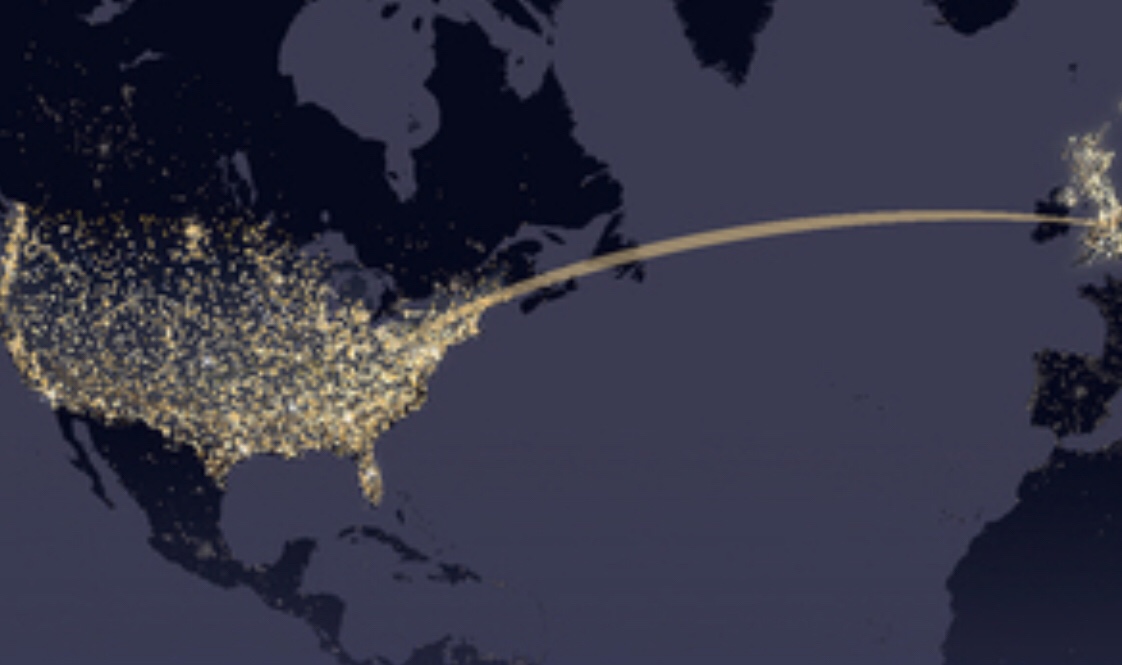Theresa May is braced for “howls of rage” as ministers finalise tariffs that would apply if there is no Brexit deal.
Liam Fox, the international trade secretary, wants a move to zero tariffs in as many areas as possible, but other ministers are demanding protection for producers, including farmers, who would struggle to compete with cheaper imports from outside the EU.

The row will come to a head this week after attempts by Mrs May to win concessions from the EU over the Irish backstop. Yesterday Jeremy Wright, the culture secretary, said that she may not seek to reopen the divorce deal, but that it could be amended by a codicil.
No-deal tariffs are published next week and Michael Gove, the environment secretary, is said to have won a promise that agriculture would be protected at least in the short term.
Industries such as ceramics, which fears annihilation without tariffs on non-EU goods, are still lobbying before a cabinet sub-committee meeting on Wednesday to sign off the regime.
To read the entire article, click here: Theresa May
Source: The Times
The number of businesses seeking a type of “trusted trader” status for faster border and customs checks in post-Brexit trade with the UK has surged, figures from Revenue show.
The tax authority said that it had received 80 applications from companies seeking approval for Authorised Economic Operator (AEO) status over the last three months.
The number of applications for this status, which allows companies to expedite the import and export of goods and avoid costly delays at ports and airports, has risen as the date of the UK’s exit from the EU has moved closer.
There were 61 applications received in 2018 with almost 80 per cent being received in the last six weeks of the year as the political uncertainty grew around the timing and manner of the UK’s exit from the EU.
Checks have been made on 31 of the recent 80 applicationsreceived between mid-November 2018 and February 11th and are being assessed by the Revenue’s control officers for assessment.
The remaining 49 applications are being examined by Revenue’s AEO unit before they are formally accepted.

An average of 12 applications a year for AEO status were received by Revenue between 2015 and 2017. To date, Ireland has granted the internationally recognised status to 157 trading companies.
Revenue says the increase coincides with significantly more focus on Brexit in its recent “outreach” seminars with traders as it encourages companies to be prepared for dealing with the UK as a non-EU country.
In another sign of businesses getting Brexit-ready, the number of companies applying for customs registration numbers – known as Economic Operators Registration and Identification (EORI) – in the first half of this month reached 1,378, more than three times the number that applied last month.
Companies require an EORI number to be able to trade with a “third country” which the UK is due to become at 11pm on March 29th.
Applying for AEO status can be a costly and time-consuming exercise, taking an average of four to six months to secure, and may not be suitable for all cross-border traders.
Gerry Harrahill, one of the Revenue commissioners, told an Oireachtas committee last month that for some businesses AEO status may be “a poor investment of time, money and expertise because the potential payback could be extraordinarily limited”.
Firms moving food or traders in the agricultural sector moving livestock would not benefit from AEO status as it offers no fast-track through food safety and sanitary and phytosanitary (SPS) – animal and plant health – checks.
“In keeping with Revenue’s role and responsibilities, we are strongly focused on facilitating the efficient and timely movement of goods in compliance with customs controls post-Brexit,” said a Revenue spokesman.
“We will continue to work to support trade and businesses in order to maintain high levels of voluntary compliance.”
My comment: It is important to know that this article is referring to the present version of the EU AEO programme, a legacy system implemented in 2008. The global standard itself, from the World Customs Organization (SAFE) allows more facilitation and different ways of applying the AEO concept. Many countries have the last 5-6 years designed, developed and implemented more modern versions of AEO (normally named Trusted Trader Programes) with lower thresholds – and thus costs – to get into the programme and considerbly more benefits for thise who qualify for the certification. The new EU Union Customs Code (UCC) allows EU to update its AEO and the process has started. UK are post-Brexit free to implement a more modern AEO programme, woth different toers meeting requirments of traders amd offering considerbly more beneofts to business, while still meeting the demands of the international standards making it possible to sign Mutual Recognition agreements with EU and other countries.
You can read the article here: Revenue sees pre-Brexit spike in applications to be trusted trader
Source: Irish Times
The UK and USA sign an agreement to continue existing arrangements which help facilitate goods trade between the two nations.
An arrangement which helps boost British trade with the US will continue when the UK leaves the European Union, supporting jobs in both countries.

The Mutual Recognition Agreement on Conformity Assessment (MRA) was signed by Her Majesty’s Ambassador Sir Kim Darroch and Deputy United States Trade Representative C.J. Mahoney in Washington today (Thursday 14 February).
The agreement will maintain all relevant aspects of the current EU-US MRA when the EU-US agreement ceases to apply to the UK. It helps facilitate goods trade between the two nations and means UK exporters can continue to ensure goods are compliant with technical regulations before they depart the UK, saving businesses time, money and resources. American exporters to the UK benefit in the same way.
Total UK-US trade in sectors covered by the deal is worth up to £12.8 billion, based on recent average trade flows. Of this, the UK exports covered are worth an estimated £8.9 billion- more than a fifth of total UK goods exports to the US. Today’s signing marks a crucial step in the important trading relationship between the UK and America, the world’s largest economy.
The agreement benefits a range of sectors, including pharmaceuticals. Pharmaceuticals account for around £7.7 billion of UK exports to the US – nearly 18% of total UK goods exports to the US. Other industries that will benefit include the tech sector and telecommunications equipment suppliers.
Similar agreements have been signed in recent weeks with Australia and New Zealand, ensuring continuity and safeguarding revenues for British businesses and consumers.
International Trade Secretary, Dr Liam Fox said:
The UK and the US are the strongest of trading partners and this agreement will allow British and American businesses to keep trading as freely as they do today, without additional bureaucracy.
Our top priority is ensuring continuity for businesses as we leave the European Union and we are signing other agreements in the days and weeks ahead. We look forward to sitting down at the negotiating table with the Americans after we leave the European Union to strike an ambitious new free trade agreement.
This agreement has been welcomed by techUK, who represent more than 900 companies and around 700,000 employees in the UK tech sector.
CEO of techUK, Julian David, said:
This is a positive step to enable trade continuity with the biggest tech market in the world. Manufacturers value the current agreement so it is very good news that they won’t now have to seek costly alternative arrangements to get approval for products used in high-end manufacturing, smart electronics and consumer devices.
Ensuring stability in this type of agreement is a strong starting point for the UK as we develop trade links with the USA as part of the Government’s support for a new and proactive trade agenda.
Dr Richard Torbett, Executive Director of Commercial Policy: UK and International, at The Association of the British Pharmaceutical Industry said:
Finalising this MRA provides UK pharmaceutical companies with business continuity by streamlining regulatory processes between the UK and USA post Brexit.
The US is already our largest trading partner outside the EU. Trade between the two countries was worth £184 billion in the year ending Q3 2018 (ONS). The US is also the single biggest source of inward investment into the UK.
The UK is prioritising a new Free Trade Agreement with the US after we leave the EU, and we will publish our response to the public consultations about our negotiation approach shortly.
The UK and US have also signed a Mutual Recognition Agreement on Marine Equipment (MRA) today. This will provide continuity of the effect of the EU-US Marine Equipment MRA when the EU-US agreement ceases to apply to the UK. This means that marine equipment manufacturers will continue only to need certification in one jurisdiction before being able to legally place their equipment on both markets and on board both UK and US flagged vessels.






You must be logged in to post a comment.